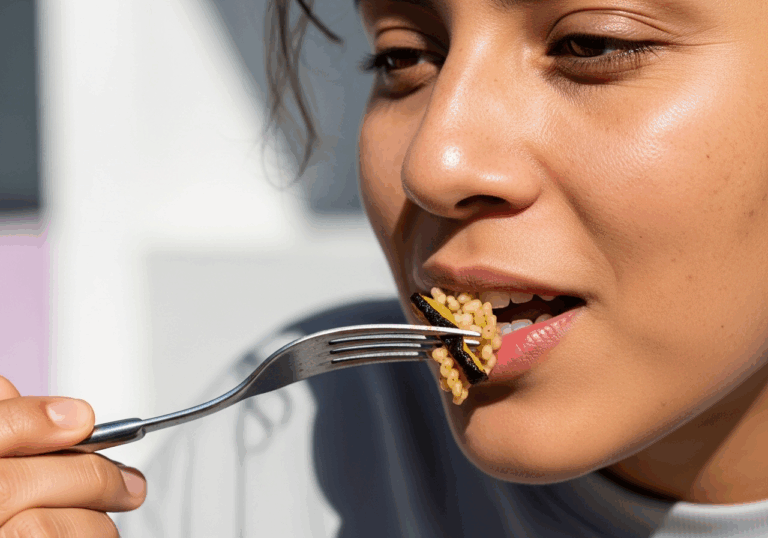Science-Backed Tips
Boost Your Mood with Zinc-Rich Foods
Zinc intake can reduce depressive symptoms by 25%.
📊 Did you know?
💡 Why It Matters
1️⃣
Adequate zinc intake is linked to improved mood and reduced depressive symptoms, potentially benefiting 1 in 5 adults experiencing depression.
2️⃣
Zinc-rich diets may enhance overall mental health, reducing healthcare costs associated with depression treatment.
3️⃣
Improving dietary zinc can lead to better quality of life and emotional wellbeing.
✅ Try These Micro-Tips
🎯
Incorporate zinc-rich foods like oysters or nuts into your diet at least 3 times a week.
🎯
Consider a daily zinc supplement of 25 mg if dietary intake is insufficient.
🎯
Aim for a balanced diet that includes legumes and whole grains, which also provide zinc.
🎯
Consult with a healthcare provider to assess your zinc levels and dietary needs.
📚 The study
With depression affecting nearly 1 in 5 adults, the implications of these findings are profound. By incorporating zinc-rich foods such as oysters, nuts, and seeds into our diets, we may not only enhance our overall mental health but also potentially alleviate the burden of depression.
This dietary approach could lead to improved quality of life and emotional wellbeing, while also reducing healthcare costs associated with depression treatment. As we continue to explore the connection between nutrition and mental health, it becomes increasingly clear that simple dietary changes can have a powerful impact on our mood and emotional resilience.
Embracing a zinc-rich diet is not just about nutrition; it’s about taking proactive steps towards better mental health and a brighter future.
❓ Frequently Asked Questions ❓
Learn more
What foods are rich in zinc?
Zinc-rich foods include oysters, nuts, legumes, and whole grains. Incorporating these foods into your diet can help improve your zinc intake.
How does zinc affect mood?
Zinc is linked to improved mood through its support of neurotransmitter function. Adequate zinc levels can reduce depressive symptoms significantly.
What is the recommended zinc intake for adults?
The recommended dietary allowance (RDA) for zinc varies by age and gender, but adult men typically need about 11 mg and women about 8 mg per day. It’s important to meet these requirements for optimal health.
Can zinc supplementation help with depression?
Yes, zinc supplementation has been shown to reduce depressive symptom scores by approximately 25% in women. This suggests that zinc can play a beneficial role in managing depression.
How often should I consume zinc-rich foods?
It is recommended to incorporate zinc-rich foods into your diet at least three times a week. This frequency can help maintain adequate zinc levels for mood support.
What are the signs of zinc deficiency?
Signs of zinc deficiency may include weakened immune function, hair loss, and mood disturbances. If you suspect a deficiency, consulting a healthcare provider is advisable.
Is it safe to take zinc supplements daily?
A daily zinc supplement of 25 mg is generally considered safe for most adults if dietary intake is insufficient. However, it’s best to consult with a healthcare provider before starting any supplementation.
How does zinc supplementation compare to other treatments for depression?
Zinc supplementation can be a complementary approach to traditional depression treatments, potentially enhancing their effectiveness. However, it should not replace prescribed medications without professional guidance.
Can a balanced diet improve mental health?
Yes, a balanced diet that includes zinc-rich foods can enhance overall mental health and emotional well-being. This dietary approach may also help reduce healthcare costs associated with depression treatment.
What should I do if I think I need more zinc?
If you believe you need more zinc, consider consulting with a healthcare provider to assess your levels and dietary needs. They can provide personalized recommendations for improving your zinc intake.





